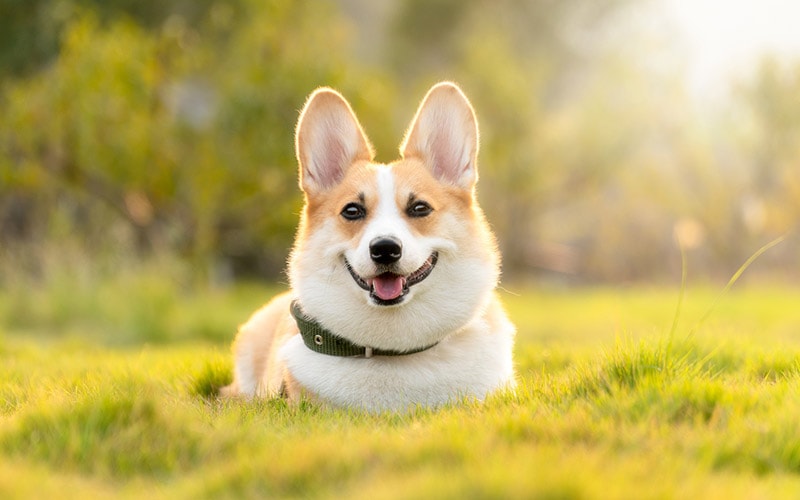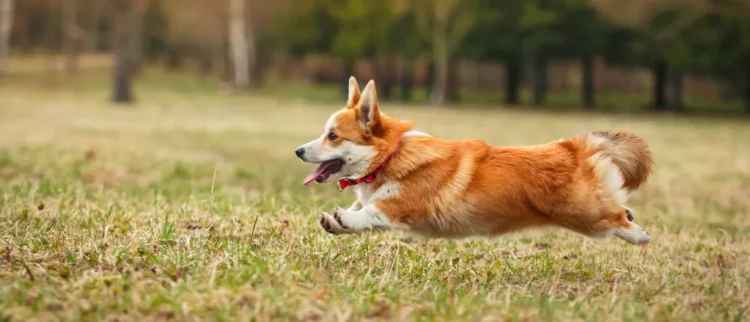The advantages and disadvantages of corgis To fully understand the corgis, you need to understand the past of corgis.
History of the Corgi Corgi, also known as the Pembroke Welsh Corgi, as the name suggests, the Pembroke Welsh Corgi was developed in the Pembrokeshire area of Wales. The Cardigan Welsh Corgi is the older of the two types of corgis, and no doubt it was used during the development of the Pembroke. Other possibilities are that the Pembrokes were introduced to Wales by Flemish weavers in the 10th century, and descendants of the Swedish Valhendes who were brought to Wales by the Vikings. The word corgi has different meanings; in Celtic it means “dog“, cor means “dwarf” and gi means “dog”. Whatever the meaning, the corgi started out as all-around farm dogs, especially cattle. They are small in stature, bite things on the heels of the cows, and duck their heads to avoid them. Due to their small size, they are less expensive to maintain, and their cropped or naturally short tail means they are working dogs and tax-free in the UK. The Pembroke Welsh Corgi as we know it today was separated from the Cardigan Corgi in the early 1930s. The dog was a gift to the Queen of England, whose subsequent love of the breed made the dog a household pet around the world. Even many people who don’t like dogs have fallen in love with the corgis featured in Tasha Tudor’s beautiful books and paintings. The Pembroke Welsh Corgi is instantly recognizable by its small stature, pointy ears and fox-like face. The tail is usually tight, but some puppies are naturally short-tailed. Aside from the obvious tail difference, the Pembroke is not as long as the Cardigan Welsh Corgi, and the skeleton is not as heavy. Pembroke Welsh Corgis are considered achondroplasia dogs, that is, have a tendency to have slightly curved limbs and back problems. They are slightly longer than tall, have straight backs and are not extreme in any way. An adult Pembroke Welsh Corgi is about 10 to 12 inches tall and weighs 23 to 28 pounds (10 to 13 kilograms). They mature around a year old, but some don’t gain weight until two or even three years old. Corgis have waterproof coats – double but very short. Colors range from rich red or buff to black or sable with white markings. Black ones usually come in white and brown, giving them three colors on their heads, ranging from red to black. Occasionally a litter of fluffy corgis appears. The fur of these puppies is longer, softer, and fluffier than typical. While these puppies make great pets, that coat is not very popular.
Five Advantages of the Corgi Corgi:
- The appearance is soft and cute. The short legs of the short-legged and fat-hip Corgi are first-class in the dog world. The adult Corgi has only 8 cm long legs, and with fat buttocks, it is simply sexy and charming to walk. .
- The character is docile, non-aggressive Corgi is very docile, and can quickly establish a relationship with the owner and trust the owner. I believe that everyone who has pets needs such a small pet who can accompany them. Corgis are not aggressive, and it is also very safe to walk the dog. If you have children at home and want to keep a dog, the corgi is a good choice. It can be a good playmate for children.
- The short hair is soft, and there is no body odor. Corgi’s coat is very short, and it is very soft and easy to take care of. The short hair will not get sundries when it is playing. Because of its short coat, its heat dissipation is also very good, and there is no body odor, so the Corgi is a very clean dog breed, and it is usually enough to take a bath once a month.
- Lively, active, optimistic and cheerful Although Corgi has short legs, do you think its motor cells are underdeveloped? It is very lively and active. It is not only soft and cute in appearance, but also a cute baby in character. If you feel that the home is too deserted, raising a corgi can immediately become lively, and it is also a good playmate for the elderly and children.
- The IQ is very high, and the IQ of the warm-hearted and sticky Corgi ranks 11th in the dog world. It can be said that it is a dog with a very high IQ.

Corgi Disadvantages Five Disadvantages of Corgis:
1.Poor obedience and poor training. Earlier we said that Corgi’s IQ is very high, so it should be said that training is very simple, and it should be taught once. But this little guy is obedient and self-willed, so training Corgi requires a lot of patience.
2.the common problem of short legs, the spine is not good Corgi’s body is not small, but the legs are short, unable to bear its weight. The corgi’s rearing process not only requires it to have beautiful buttocks and plump buttocks, but not too fat, otherwise it will easily damage its spine. It is recommended to hold it in your arms when going up and downstairs to reduce the burden on the spine. After all, it is too mobile, and ordinary excessive exercise will damage the spine.
3.The stomach is fragile, the stomach that feeds the god-consuming corgi is very fragile, but it is also a glutton, like a gluttonous little boy, who likes to eat snacks very much. Do not feed it the snacks the owner eats, it will easily make it sick. If the shit shoveling officer is not very careful, don’t raise the corgi. If you are not careful, it will easily vomit and have diarrhea. Not only does it take time to clean up, but it is also very harmful to the corgi. Therefore, corgi needs to be fed carefully and patiently by the owner!
4.the hair is strong and the hair loss is serious. Although the corgi is short-haired, it is easier to take care of than the thick-haired dog, but its hair loss degree is also first-class in the dog world, especially it is a gluttonous guy, It is easy to be obese and malnourished, and the dog hair in the house will fly all over the house during the molting season.
5.Strong energy, need to walk more Corgis are lively and energetic by nature. When they go out to walk the dog, they will run away happily. If the owner is not physically strong, they may not be able to keep up with its rhythm. If you don’t let it walk more and achieve the amount of exercise, it will also be unable to rest and turn to tearing down the house. In general, the Corgi is a very suitable pet dog for domestication, which can accompany children and the elderly at home.























































